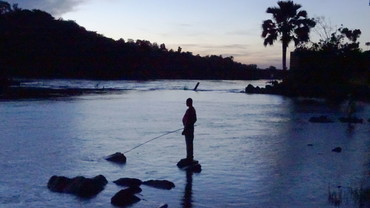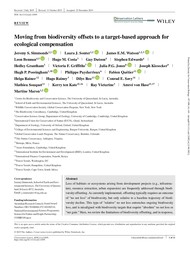Achieving ‘no net loss’ for people and biodiversity in Uganda - U-PCLG Policy Brief

Governments, businesses and financial institutions worldwide are increasingly adopting a ‘no net loss’ (NNL) approach to address impacts on biodiversity of development projects such as infrastructure development. This means ensuring that such impacts are measured and quantified, and that any biodiversity losses incurred are balanced by gains elsewhere so that there is no net loss of biodiversity overall (even if there may be a loss at the specific site of the project) and, ideally, a net gain. Uganda is taking great strides to address the biodiversity impacts of development projects. This includes updates to key policies to make provisions for NNL, including through use of biodiversity offsets. But now is the time to ensure that people, especially rural communities who depend on natural resources for subsistence, do not suffer as a result of NNL provisions. This policy brief reports on research conducted in Uganda to explore the biodiversity and social impacts of the Bujagali and Isimba hydropower projects and the associated Kalagala Offset, and suggests key steps that the National Environmental Management Association (NEMA) can take to improve outcomes for both biodiversity and local people from the offset, especially through the Kalagala Offset Sustainable Management Plan. This publication is an output of the Poverty and Conservation Learning Group (PCLG) - Briefing Paper
Cite this publication
Available at https://www.iied.org/g04404



